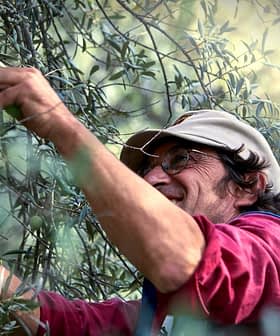New mining operations in olive growing areas in Turkey have been halted by a decision of the Council of State.
The 8th Chamber of the highest-ranking administrative court in the country has opted for a temporary stop to conduct a closer examination of the issue.
Local media reported that the council made its ruling because the government’s decision to allow the mining operations appeared to contradict the country’s Olive Growing Law No. 3573.
See Also:Turkey Suspends Exports of Agricultural Products, Bulk Olive OilThe law regulates olive growing operations by establishing principles and parameters such as the minimum surface extension of the groves, procedures to interact with local authorities and other requirements connected to olive operations and public funding.
The Council of State added that the new regulation brought forward by the country’s ruling Justice and Development Party (AKP) could also prove against the public interest.
The AKP has argued that the regulation is necessary to exploit the country’s extensive coal reserves in Turkey’s western Aegean region and its southern coastline with the Mediterranean Sea. These regions also coincide with the most relevant olive-producing areas in the country.
Opposition parties and farmers’ associations have criticized the new rules. Mustafa Tan, chairman of the board of Turkey’s National Olive and Olive Oil Council, told Olive Oil Times that no trees had been removed as of the second week of March, but “we are worried that it will begin soon.”
“There are roughly 500,000 families who are olive producers in Turkey, and around 10 million people benefit from the industry directly or indirectly,” he added. “A very meaningful amount of the 190 million olive trees will be negatively affected eventually by the mining operations.”
AKP advocated for the mining operation to expand due to the ongoing crisis in the international energy market caused by the Russian invasion of Ukraine.
According to the U.S. Energy Information Administration, coal is Turkey’s most relevant energy source. Additionally, the country has seen its energy demand skyrocket since 2010, well above the average growth reported by the Organization for Economic Cooperation and Development for its member countries.
Turkey is also one of the world’s most important olive oil producers. According to International Olive Council data, Turkish olive oil production for the 2021/22 crop year will reach 227,000 tons. Only Spain and Italy, traditionally the two largest olive oil-producing countries, yielded more olive oil this year.








